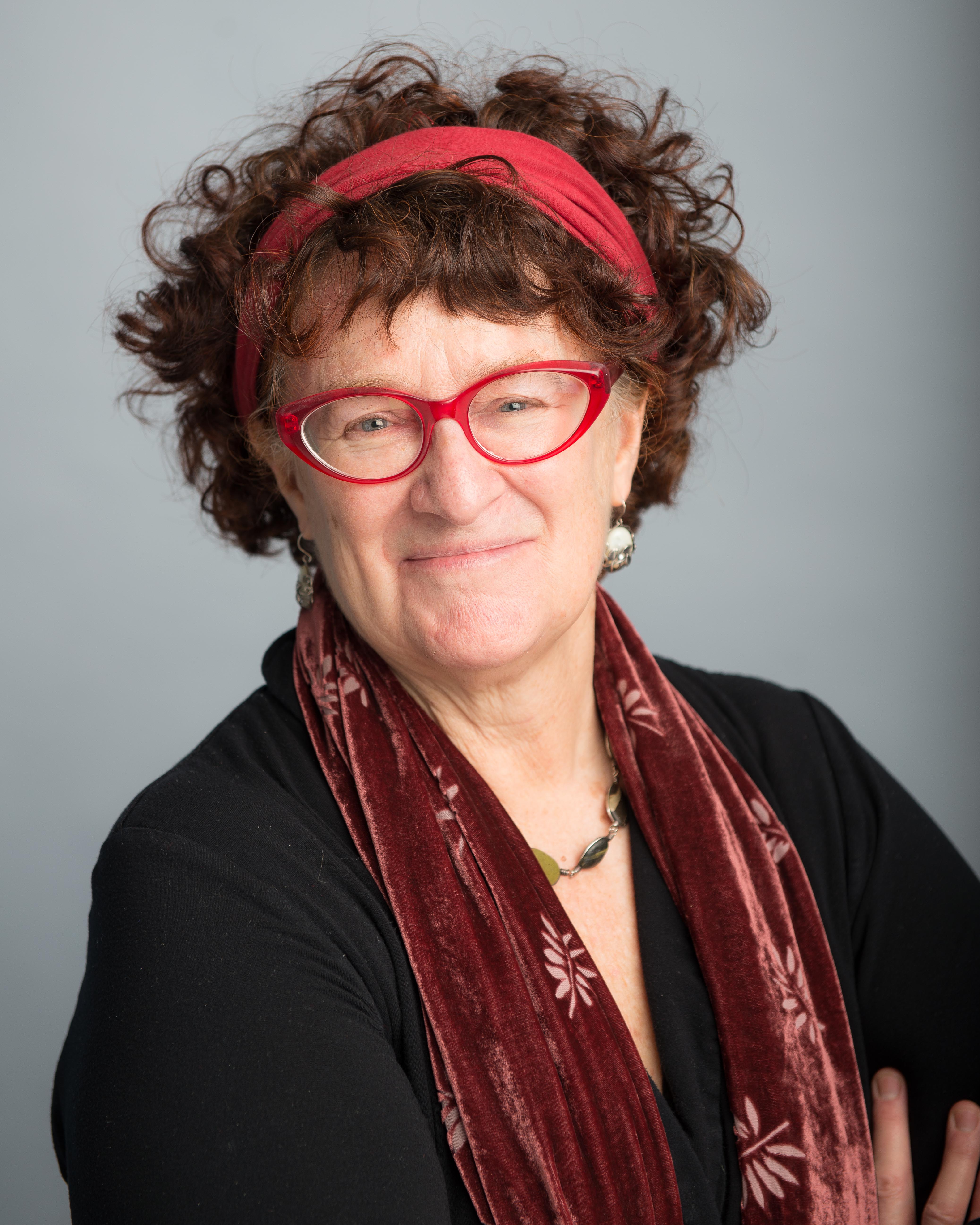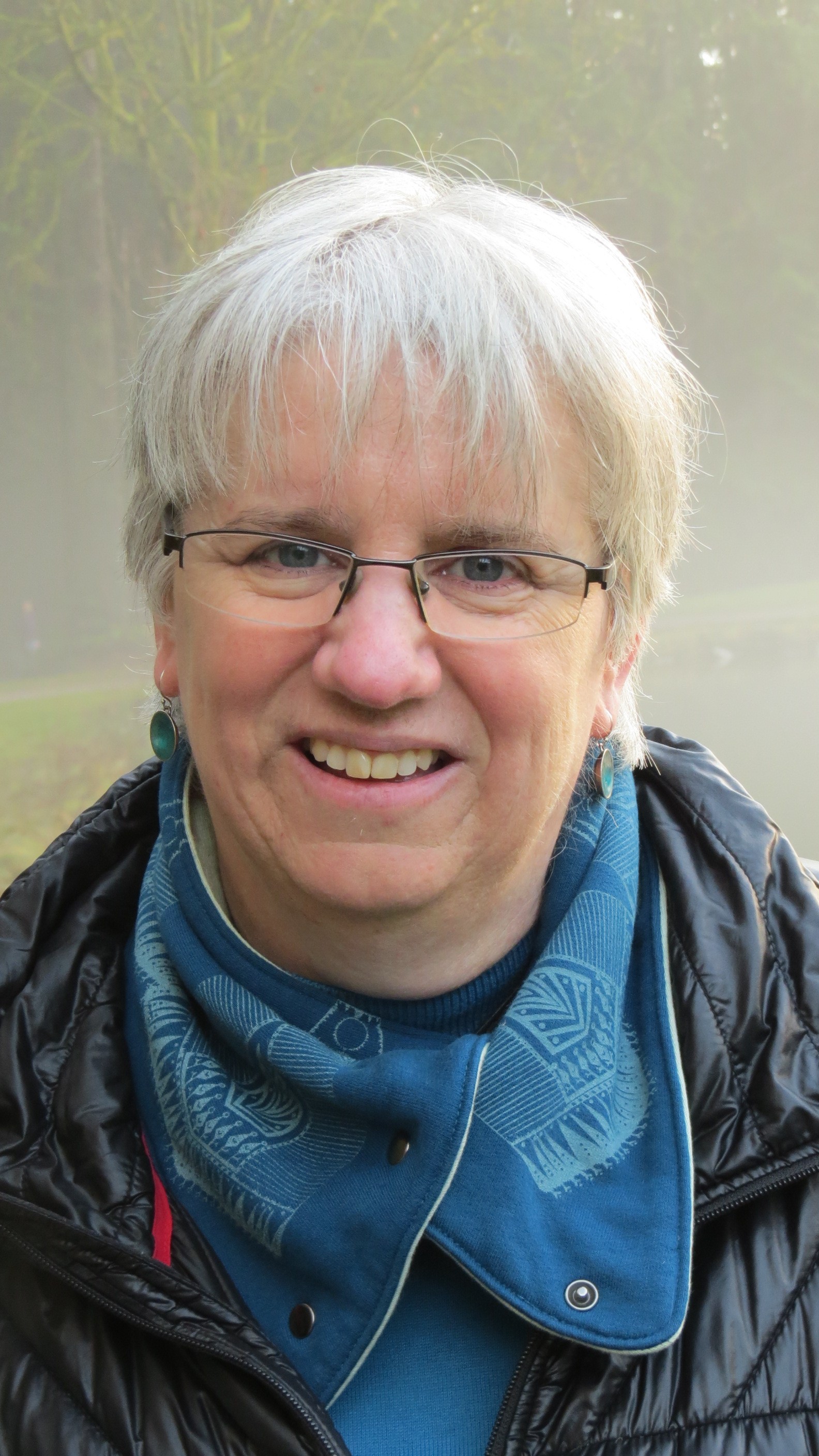|
Coronavirus
Update:
Due to the
pandemic the Bridges organization
regrets that it is not able to
hold the in-person conference
planned for Aalto University
in August 2021. The conference and
its mathematical poetry reading
became virtual. Videos
of poets reading their
work will be linked below.
We hope that you enjoy the
virtual reading as
much as you would if we
were all there in person!
|
Coordinated by Sarah Glaz, Emeritus Professor of Mathematics at the University of Connecticut and poet, the poetry reading at Bridges 2021 features poetry with strong links to mathematics, a great variety of topics, and a wide range of poetic styles. The program starts with fourteen prominent poets reading selections from their work, followed by an open mic and shorter readings period where past Bridges poets and Bridges 2021 participants read their own mathematical poems. Additional information on the Bridges 2021 virtual conference and the poetry reading will be posted here and on the Bridges Organization site in August. Works by past and present Bridges poets are included in the Bridges Poetry Anthologies. More information about the Bridges poets may be found on The Bridges Poets Anniversary Year News. Information on past Bridges Poetry Readings and Bridges Poetry Anthologies appears on the Bridges Organization site and at The Bridges 2020 Poetry Anthology site.
This page and several of the linked videos are best viewed on a wide screen. In case the screen is narrow, please scroll right and left to display both columns of the featured poets' table and fully display all linked videos.
Poetry lovers, here is a treat for you!
The January 2022 issue of the Journal of Humanistic Mathematics features a poetry folder consisting of Fibs composed by the Bridges 2021 virtual poetry gathering participants.
For your enjoyment, read the poems at this link:
Poetry in the Glade: Bridges 2021 Fib Collection
Attention page viewers!
About the Coordinator and the Invited Poets
Including links to the videos and printable sample poems of the Bridges 2021 Virtual Poetry Reading
|
Bridges 2021 Virtual Poetry Reading Video of Sarah Glaz welcoming the audience and reading: The Death of Euclid and Archimedes Printable sample poem: Twenty-Eight Lines for the En-Priestess Enheduanna |
|
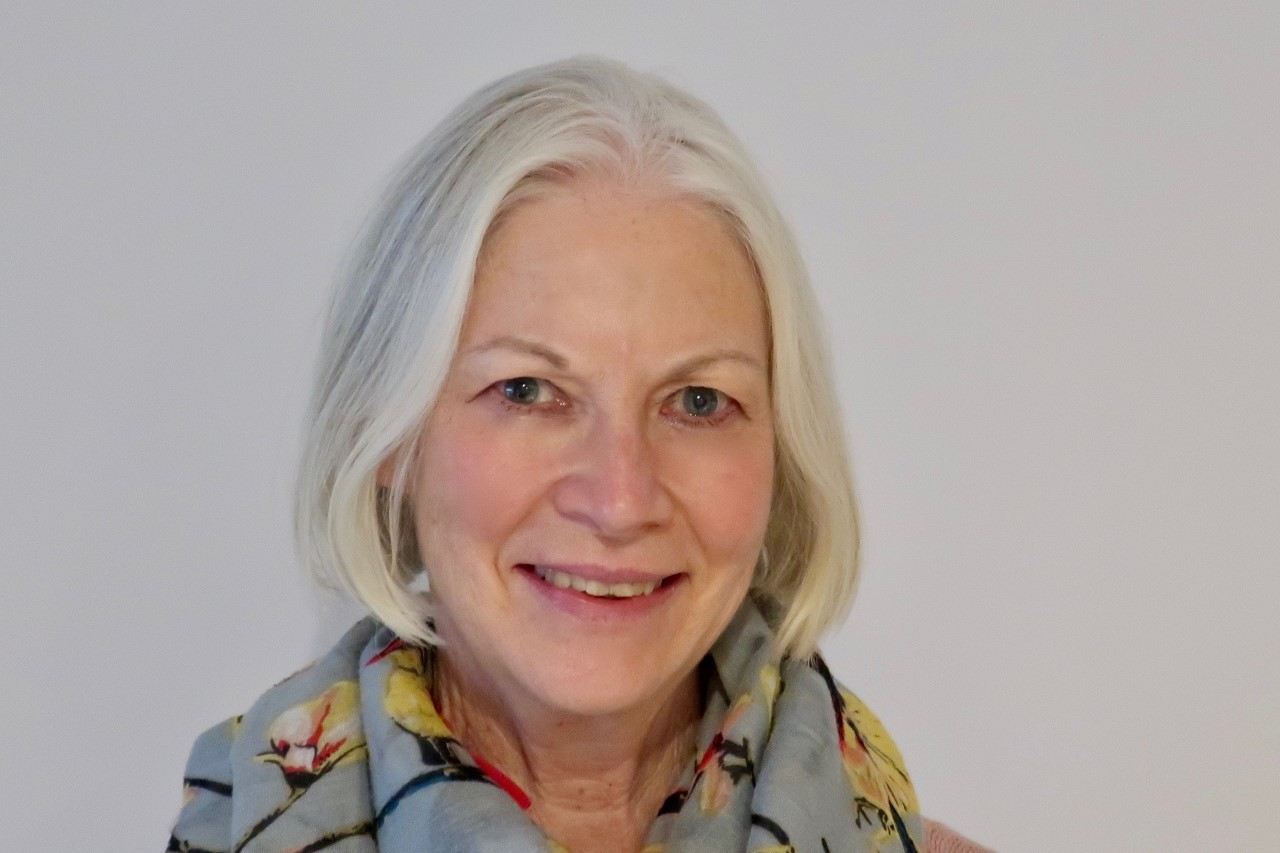
Marian Christie
grew up in what is now Zimbabwe. Drawn to both the
arts and the sciences, she wrote poetry from an
early age finding inspiration in the southern
African landscape.
At
university she studied applied mathematics and
went on to teach mathematics at schools in the
Middle East and Scotland. Throughout her teaching
career, she sought creative ways to stimulate
students' interest and enjoyment in mathematics,
particularly through cross-disciplinary projects
incorporating the arts and humanities. Now retired
from teaching, she lives in Southeast England
where she has recently completed a master's degree
in creative writing. In her poetry she frequently
interweaves mathematical imagery with everyday
experience, at times explicitly, at times more
obliquely. Her work has been published in a number
of journals, both online and in print.
|
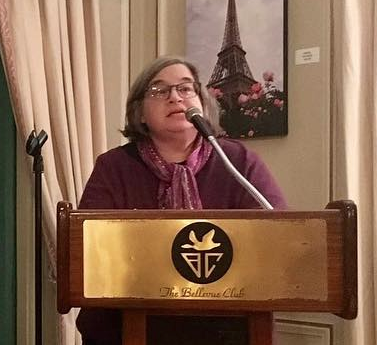
Carol
Dorf is fascinated with the boundaries between
disciplines, particularly mathematics and poetry.
She is poetry editor of Talking
Writing where she writes about issues in
contemporary poetry, and has edited several issues
on mathematical poetry, science poetry, and
technology poetry. For many years, she taught high
school mathematics, and has led poetry workshops as
a California-Poet-in-the-Schools, at Berkeley City
College, and other art venues. She brought her loves
together by introducing poetry into the mathematics
classroom and by teaching poetry writing to
mathematics teachers. She has three chapbooks
available, Some Years Ask (Moria Press), Theory
Headed Dragon (Finishing Line Press), and Given (Origami Poems
Project). Her poetry appears in Great
Weather For Media, The Mom Egg, Sin
Fronteras, E-ratio, About Place, Glint,
Slipstream, The Journal of Humanistic Mathematics,
Scientific American, and Maintenant.
|
|
Susan Gerofsky is
an Associate Professor of Mathematics Education and
Environmental Education at the University of British
Columbia, Vancouver, BC, Canada. Her
interdisciplinary research is in embodied,
multisensory, multimodal mathematics education
through the arts, movement, gesture and voice. She
works in curriculum studies, environmental
garden-based education, the language and genres of
mathematics education, and media theory.
Dr. Gerofsky is academic advisor and
co-founder of the UBC Orchard Garden, a student-led
campus learning garden. She is active as a poet,
playwright, musician and filmmaker, and also works
with dance and fiber arts. You'll often find her
cycling around town with a baritone horn or an
accordion. Susan
contributed to the award-winning book, Poetic
Inquiry: Enchantment of Place (Vernon Press, 2017) and has a verse
play, Keple:
A Renaissance Folk Play, published in The
Mathematical Intelligencer. https://link.springer.com/article/10.1007/s00283-018-9818-2#citeas
|
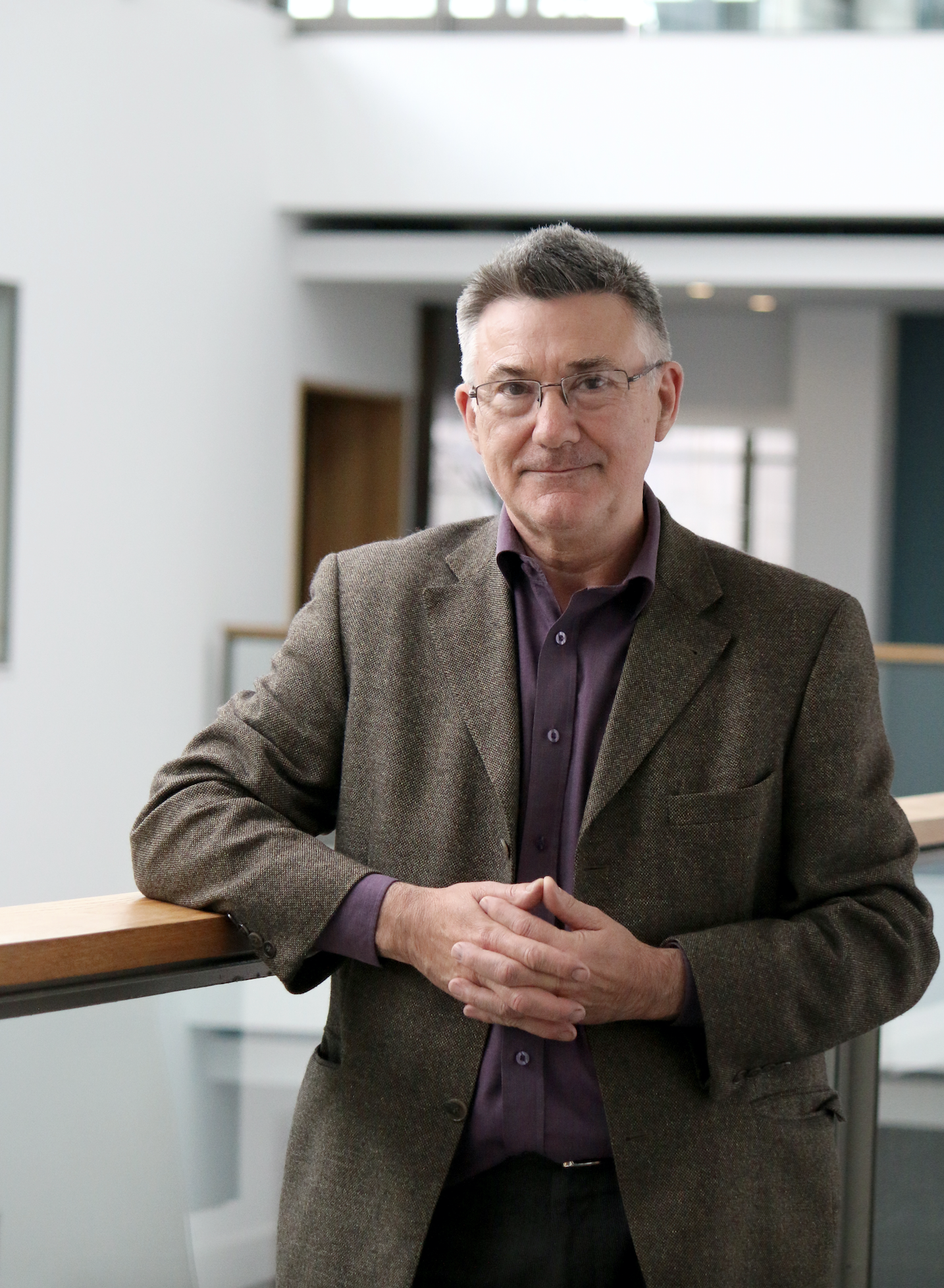
David Greenslade
recently retired as a grammar and writing tutor at
Cardiff Metropolitan University. He
writes in Welsh and English and has taught at a
number of universities. He has
also led writing workshops in prisons and other
challenging environments. David
authored several collections of prose poetry. His
collection Lyrical Diagrams (Shearman Books,
2012) juxtaposes diagrams with poetic-mathematical
texts. He
has received British Council support for his work
and is a winner (twice) of the Planet Welsh
Internationalist Essay Award. In
2019 he curated an exhibition of Welsh and Romanian
Surrealist Art at the Welsh Senate. His latest
publication as editor is Imagined Invited (Hafan Books,
2020) an international anthology of poetry and
surrealist collage. Currently he shares his time
between Wales and Romania where he continues to
write, exhibit and nurture international projects. https://the-otolith.blogspot.com/2018/05/david-greenslade.html
Bridges
2021 Virtual Poetry Reading |
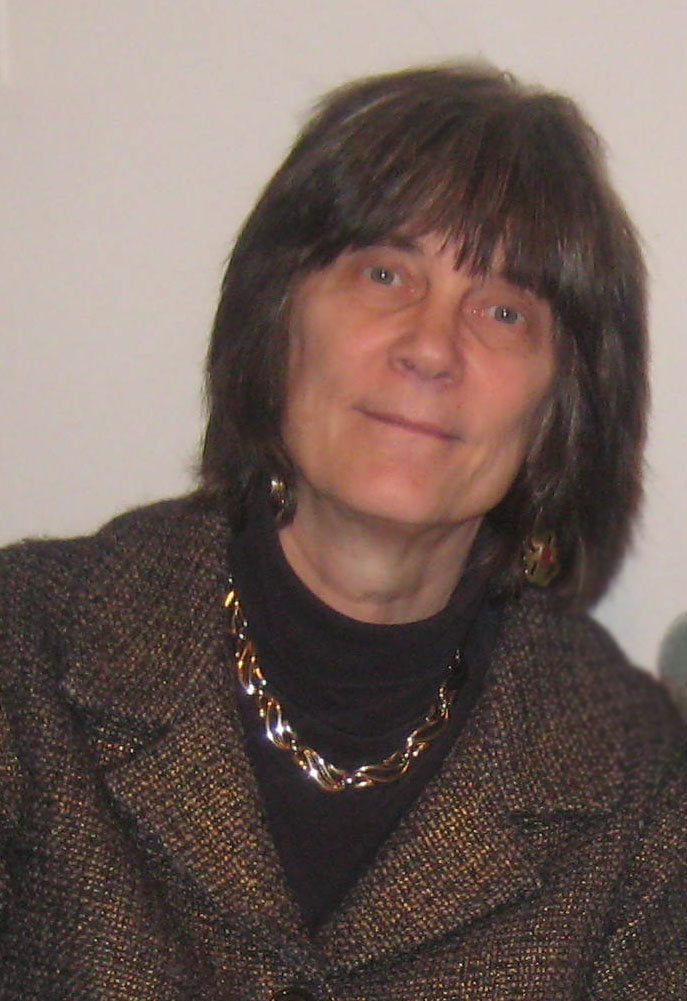
Bridges 2021 Virtual
Poetry Reading
|
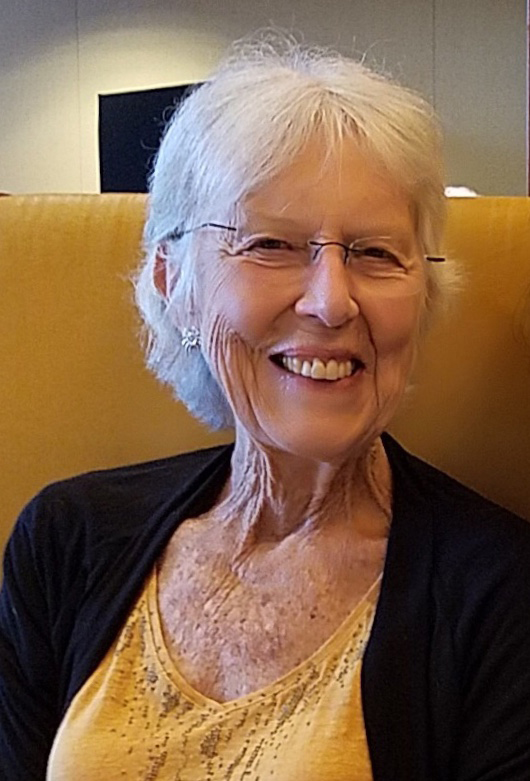
JoAnne Growney, Emeritus
Professor of Mathematics at Bloomsburg University,
Pennsylvania, now lives in Silver Spring, Maryland,
where she writes poems, guides poetry workshops, blogs
about math-poetry connections, and enjoys activities
with grandchildren. From childhood JoAnne loved
both poetry and mathematics -- but mathematical
studies offered needed scholarships. When again
there became time for poetry, mathematics was one of
her inspirations.
With numerous poems in math and literary
journals, JoAnne
also has published several poetry collections. Hypothesizing
that everything connects, she delights in the
elegant language of both mathematics and poetry and
frequently applies mathematical constraints to help
shape her thoughts into poems. Her
blog "Intersections --Poetry with Mathematics" offers
a varied selection of poetry and commentary by poets
from around the world -- and a few items of her own. https://poetrywithmathematics.blogspot.com
|
|
Lisa Lajeunesse is a
professor of Mathematics at Capilano University in
North Vancouver. As an undergraduate, she studied
mathematics and music. Before embarking on
graduate studies in mathematics, she worked for ten
years with Telesat Canada on the launch and control of
Canada's communication satellites. At Capilano
University, she has developed and taught courses on
the connections between mathematics and the arts to
reach out to non-science students, and to express her
lifelong passion for creative writing, music and other
art forms. During a sabbatical in 2016/2017 she wrote
a textbook for these courses, which prompted her to
attend Bridges for the first time. Since then, she has
adapted popular logic puzzles to encode poetry so that
the solving of each puzzle unlocks a poem. A sample of
Lisa's poetry may be found at her website. https://lisalajeunessepoetry.wordpress.com/
|
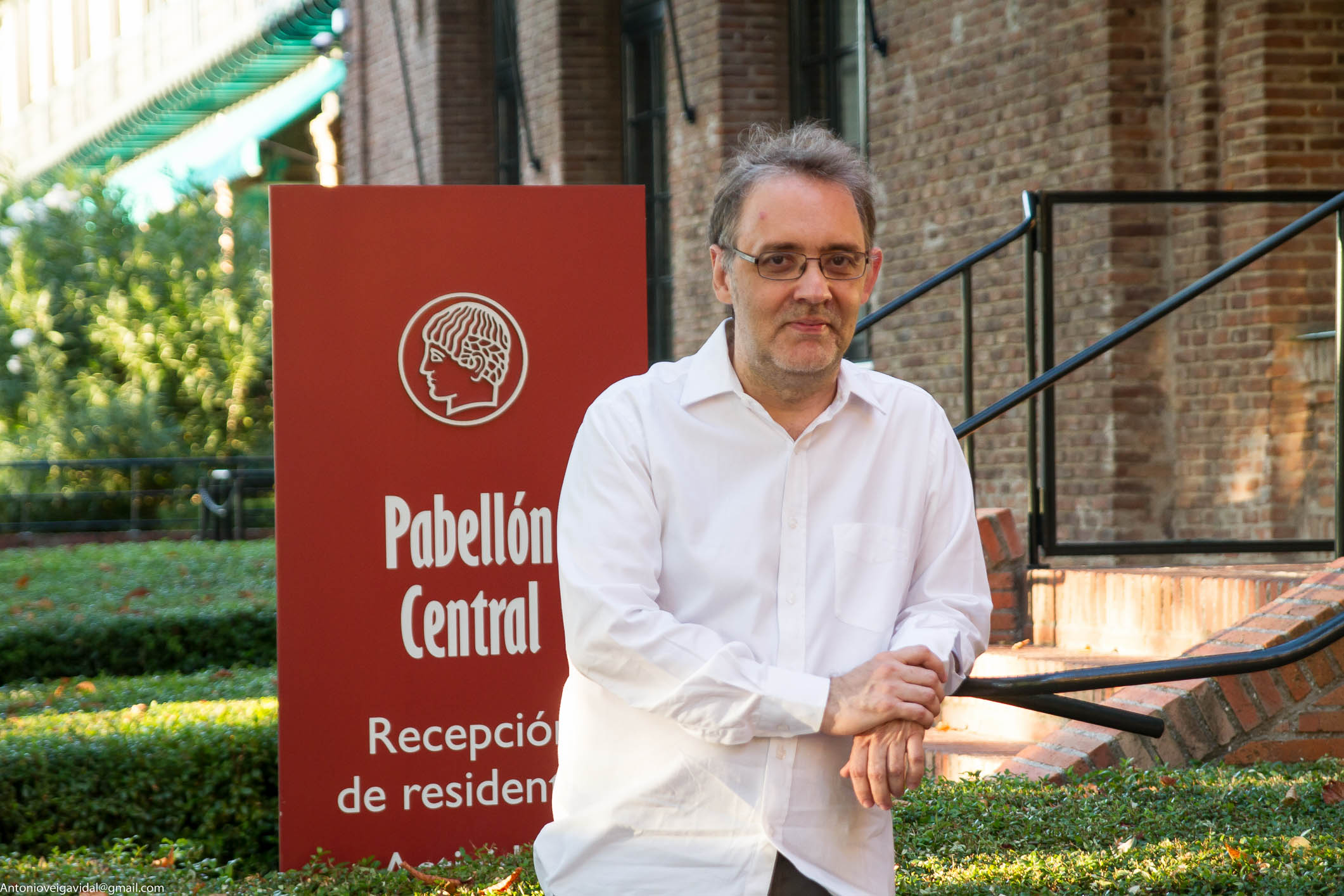
|
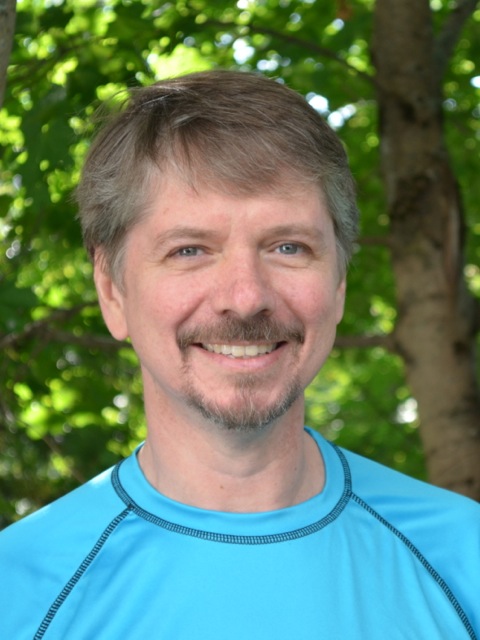
Mike Naylor is a
co-director of Matematikkbolgen and of the Math
Creativity and Competency Center in Norway. He gives
courses for teachers, students and the public, designs
math rooms for schools and develops mathematical games
and learning products. Mike presents mathematical
ideas in creative ways, including poetry, literature,
art, music, video, software, drama, and other
performances, and is author of over 100
publications spanning a range of mathematical genres.
Mike is known for his Naked Geometry art
series and book, and his quarterly column on
Mathematics and Creativity in Tangenten
magazine. In 2015 he was named a "Math and Science
Hero" by the minister of education in Norway. For the
past eleven years Mike has presented artwork and
poetry at the Bridges conferences. More information on
Mike's projects can be found at his website.
|
Osmo Pekonen, Ph.D.,
D.Soc.Sci., is a Finnish mathematician and writer
based at the University of Jyvaskyla. As a
mathematician, he has published on differential
geometry, Teichmueller theory, K-theory and string
theory, as well as on topics from the history of
mathematics. He serves as the Book Reviews editor
of The Mathematical Intelligencer. As a
writer, he is best known for his essays, biographies
and poetry translations. In particular, jointly with
the Old English scholar Phil. D. Clive Tolley, Osmo
translated into Finnish, the epic poem Beowulf
(Helsinki:
WSOY, 1999). He is a member of The Finnish Literature
Society, the Finnish Association of Authors, and a
corresponding member of four literary academies in
France. The Institut de France awarded him the Chaix
d'Est Ange prize of 2012. More information can be
found at his website. https://fr.wikipedia.org/wiki/Osmo_Pekonen
|
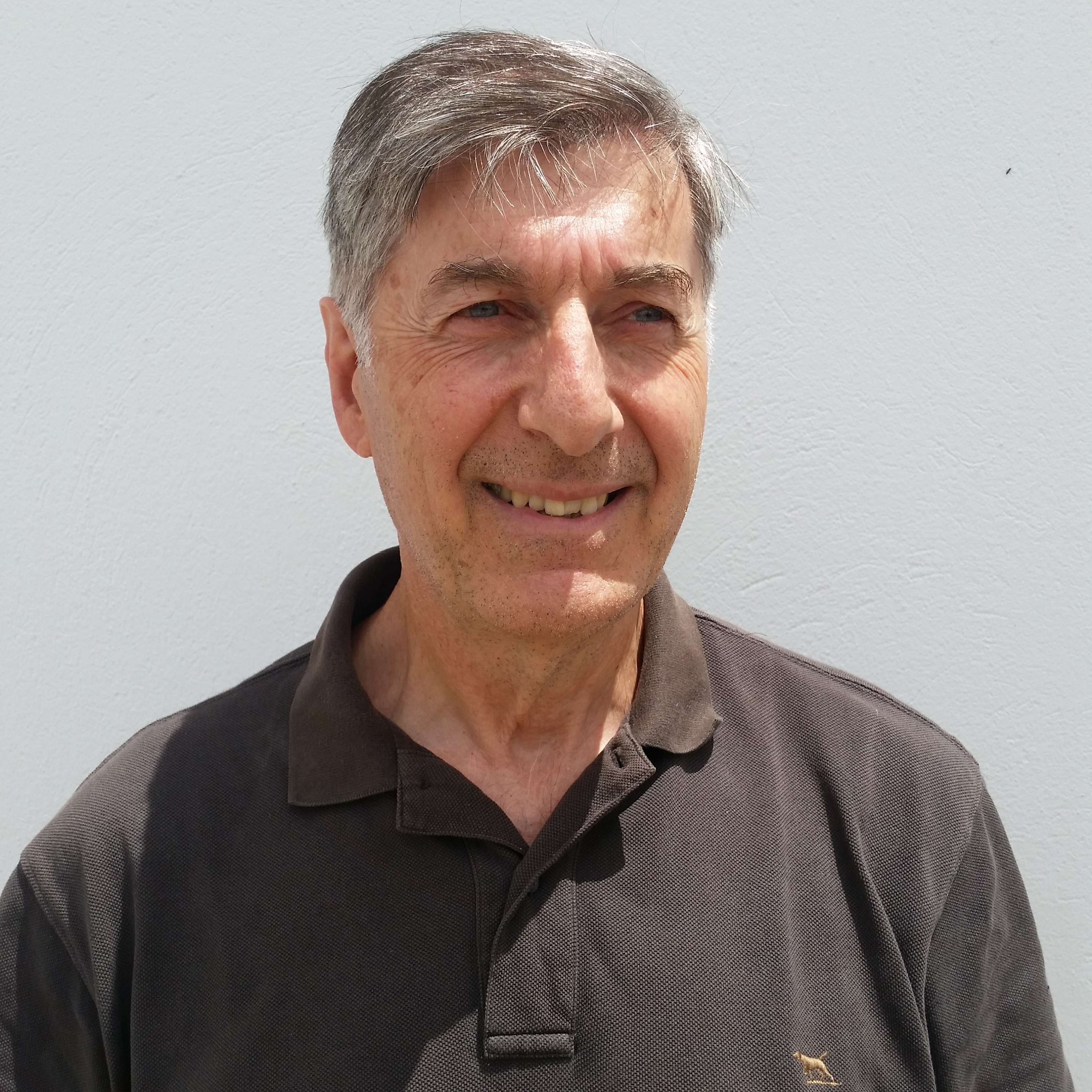
Bridges
2021 Virtual Poetry Reading
|
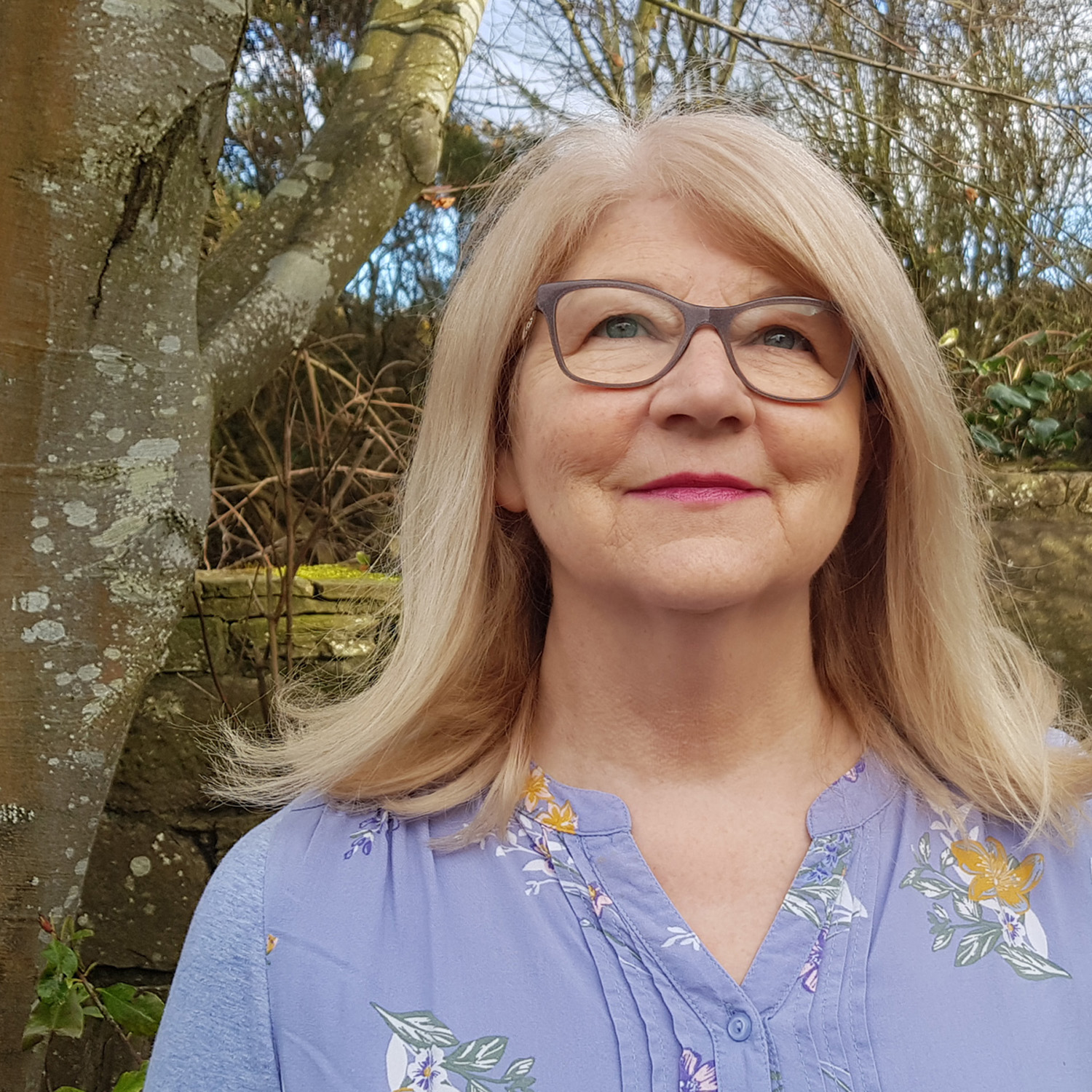
http://onlinelibrary.wiley.com/enhanced/doi/10.1111/j.1740-9713.2011.00510.x
Bridges
2021 Virtual Poetry Reading |
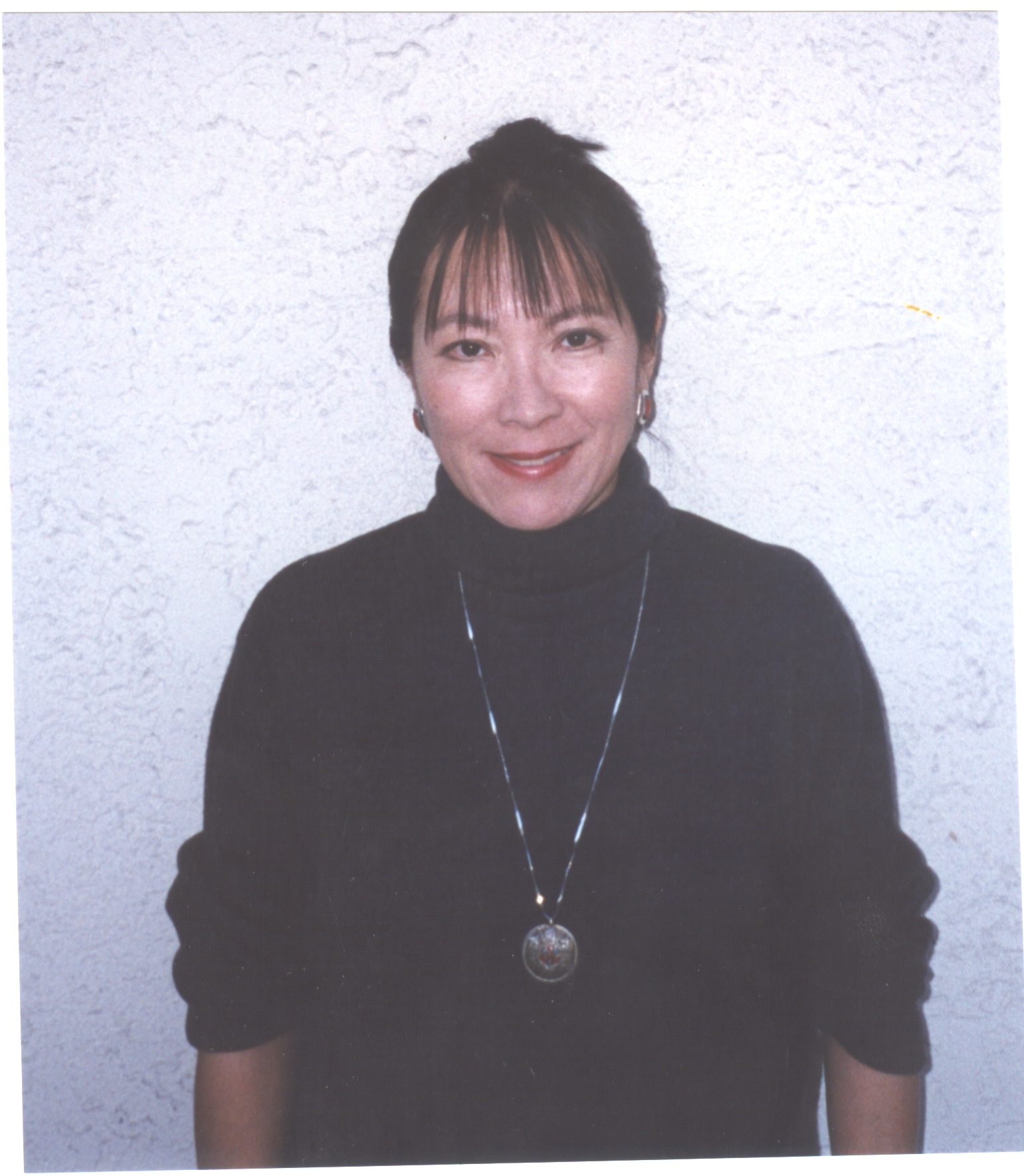
Amy Uyematsu, who taught
high-school math for 32 years, is a sansei
(third-generation Japanese American) from Los Angeles.
Her poems consider the intersection of politics,
mathematics, spirituality, and the natural world. She
has published five poetry volumes: 30 Miles from
J-Town (Story Line Press, 1992), Nights of
Fire, Nights of Rain (Story Line Press, 1998), Stone
Bow Prayer (Copper Canyon Press, 2005), The
Yellow Door (Red Hen Press, 2015) and Basic
Vocabulary (Red Hen Press, 2016). Amy is the
recipient of the 1992 Nicholas Roerich Poetry Prize.
Prior to teaching mathematics, Amy was active in Asian
American Studies at UCLA, and in 1971 she coedited the
anthology Roots: An Asian American Reader (UCLA
Asian American Studies Center Press). Currently Amy
leads a women's writing workshop in Little Tokyo Los
Angeles at the Far East Lounge.
http://www.poetryfoundation.org/bio/amy-uyematsu
|
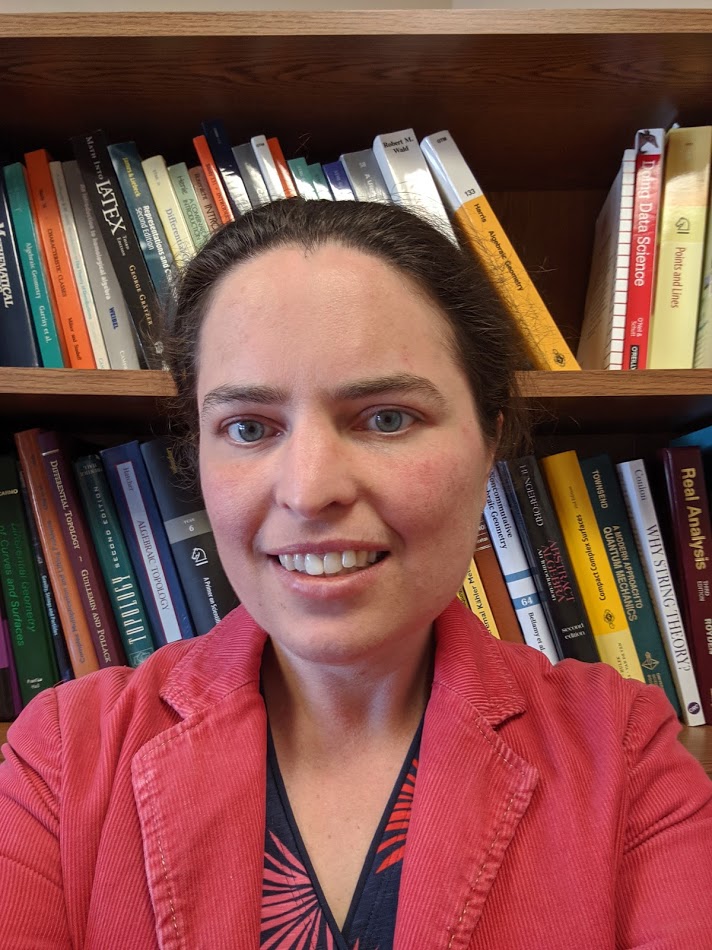
Ursula Whitcher is an
Associate Editor for Mathematical Reviews, a
publication of the American Mathematical Society. She
received her Ph.D. in pure mathematics from the
University of Washington and worked as a postdoctoral
fellow at Harvey Mudd College and as a mathematics
professor at the University of Wisconsin-Eau Claire
prior to joining Math Reviews. Her research
illuminates connections between algebraic geometry,
number theory, and the physics of string theory. She
received the Mathematical Association of America's
Merten Hasse Prize for mathematical exposition and is
a regular contributor to the AMS Feature Column,
a collection of mathematical essays for a general
audience. Her poetry has appeared in a variety of
venues, including the Journal of Humanistic
Mathematics, The Cascadia Subduction Zone,
VoiceCatcher, Rosalind's Siblings, Liminality,
and Goblin Fruit; she has also published
fiction and narrative games. http://yarntheory.net/writing/
|
Open Microphone for Past Bridges Poets and Bridges 2021 Virtual Participants
Including links to the videos and printable sample poems of the Bridges 2021 Virtual Open Mic
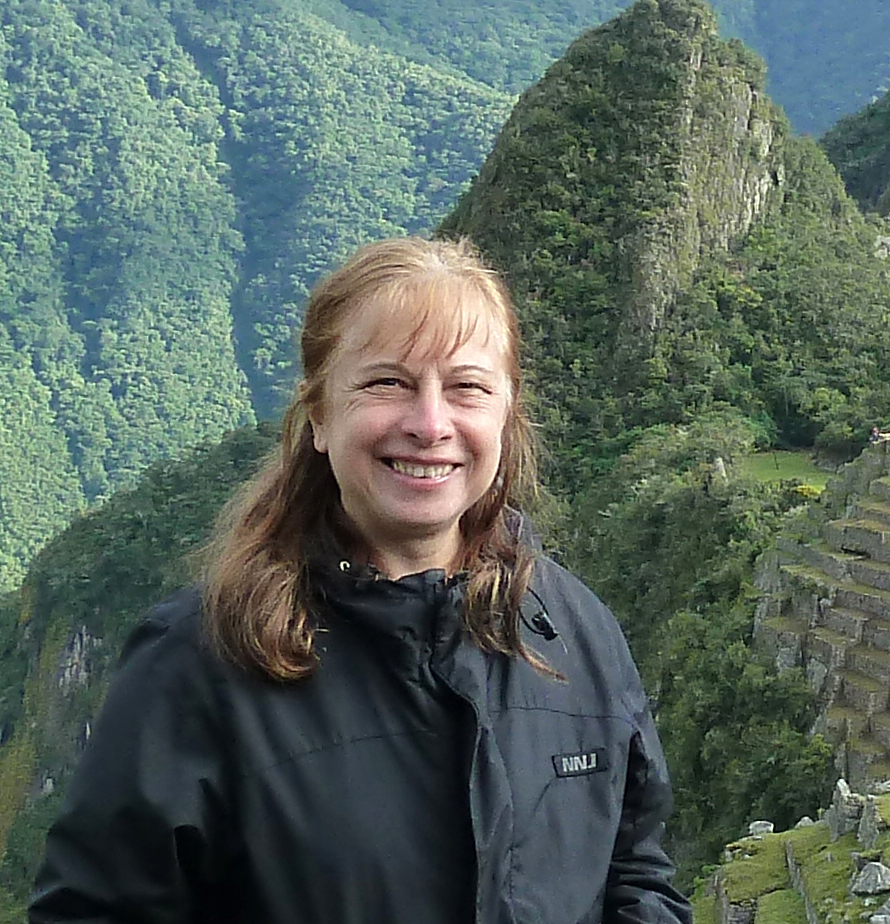
Susana Sulic
Paris, France
http://www.lespressesdureel.com/EN/ouvrage.php?menu=&id=5981
Bridges 2021 Virtual Poetry Reading
Video of Susana Sulic reading: Spatial Contamination
Printable sample poem: Timeline
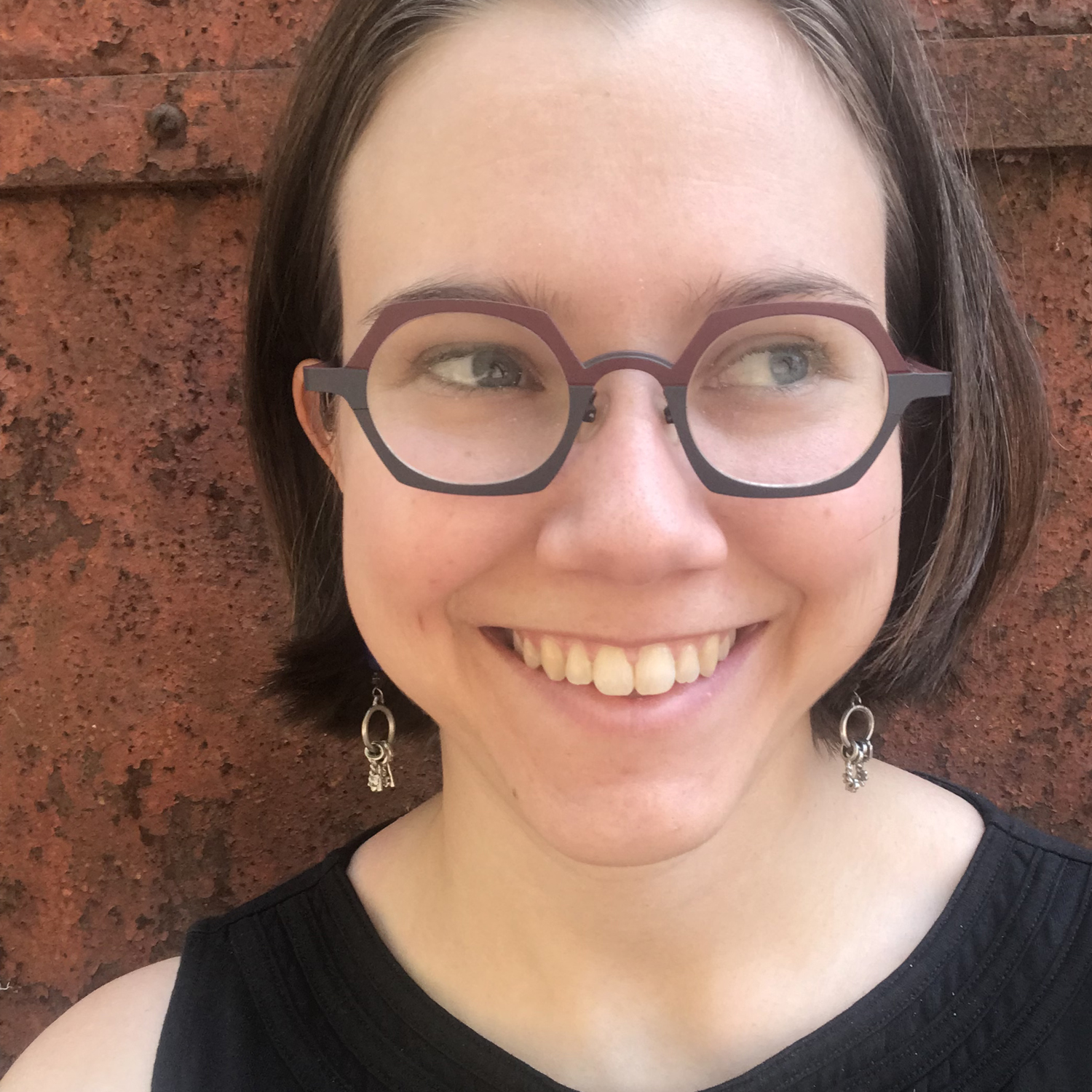
S. Brackett Robertson
St. Paul,
Minnesota, USA
Bridges 2021 Virtual Poetry Reading
Video of S. Brackett Robertson reading: Surreal Numbers
Printable sample poem: Surreal Numbers
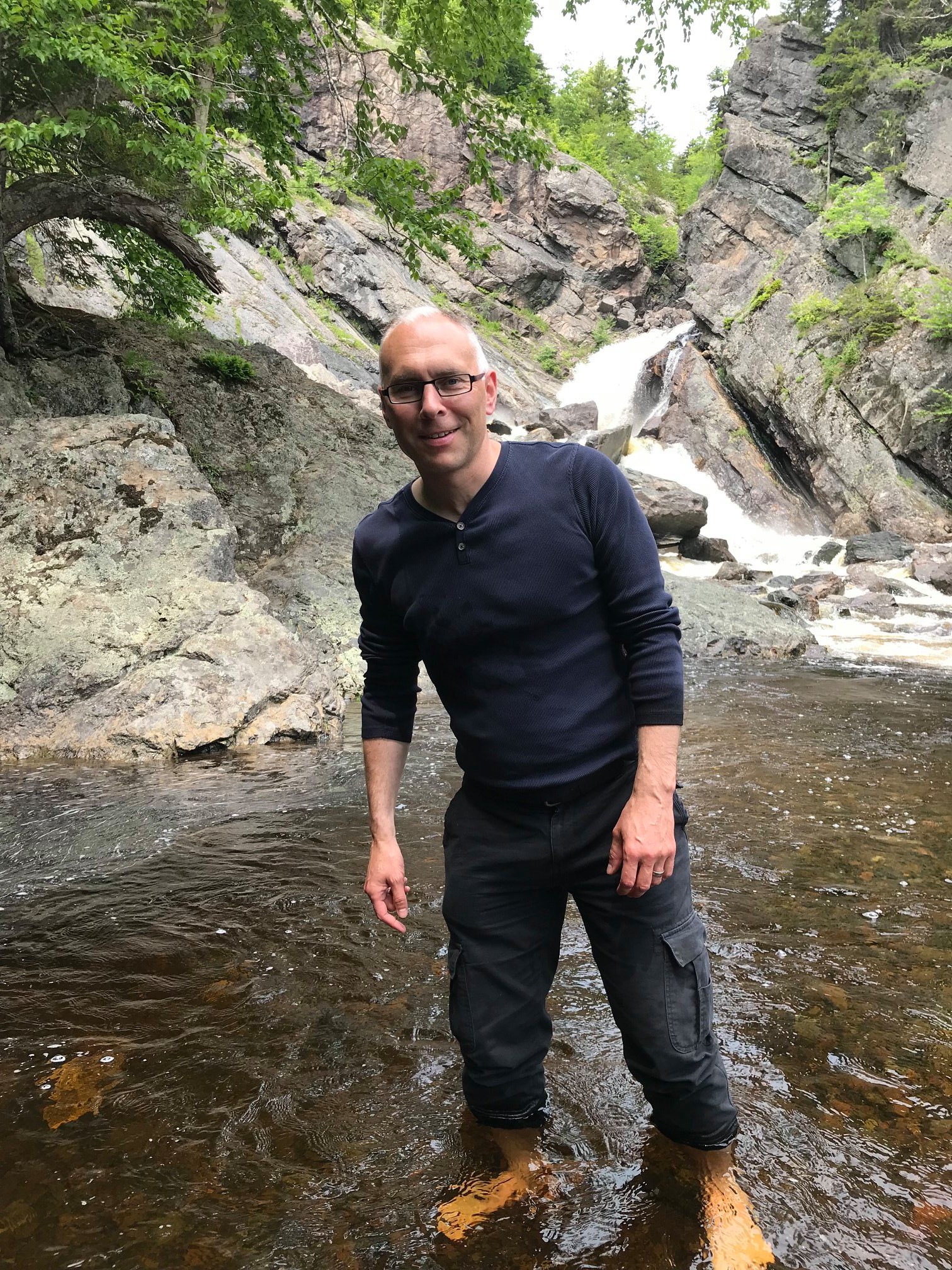
Stephen Wren
Kingston
University, London, UK
Bridges 2021 Virtual Poetry Reading
Video of Stephen Wren reading: Imaginary grass landscape
Printable sample poem: Imaginary grass landscape
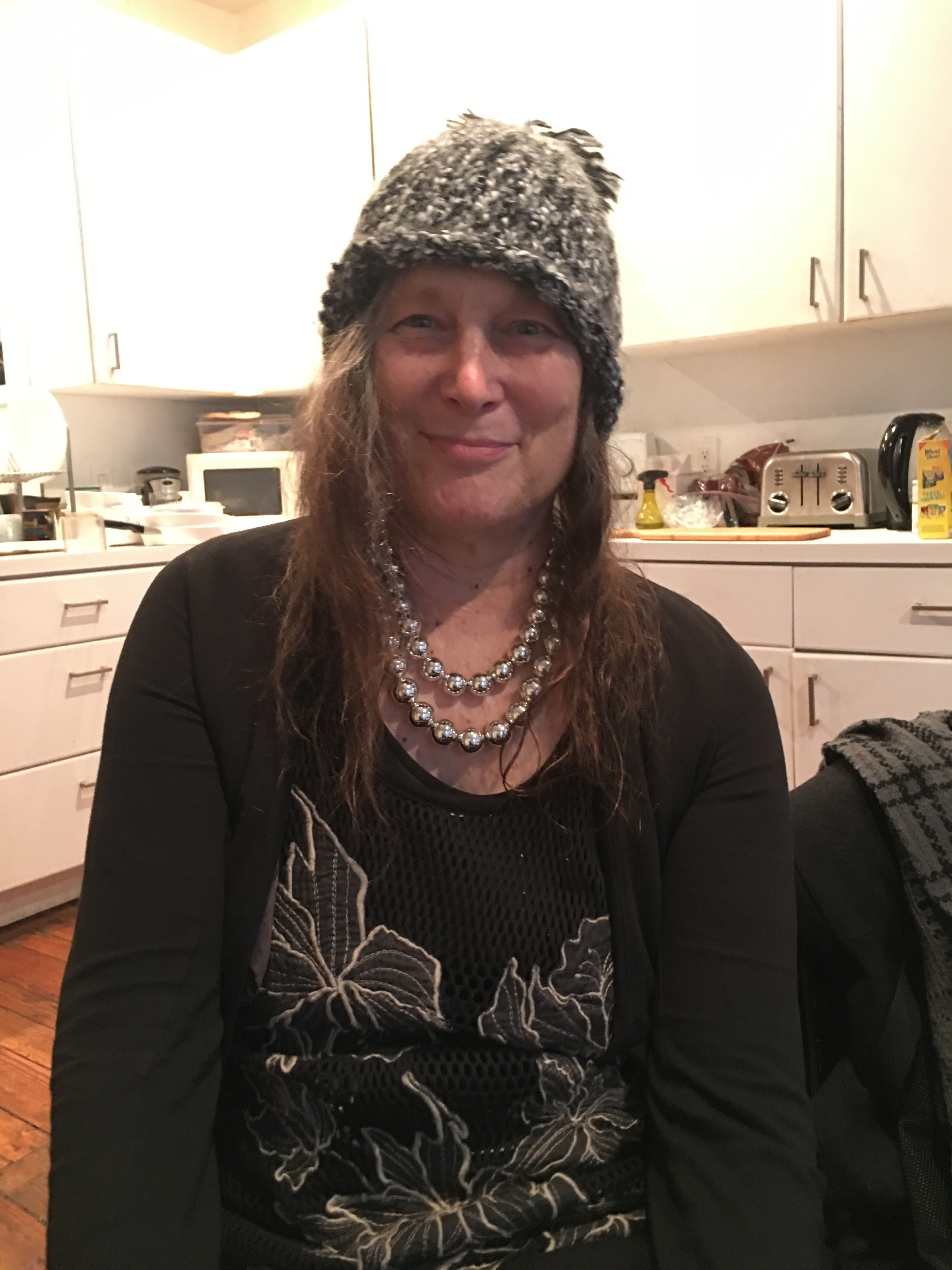
Marion Deutsche Cohen
Drexel University, Philadelphia, Pennsylvania, USA
https://marioncohen.net/
Bridges 2021 Virtual Poetry Reading
Video of Marion Deutsche Cohen reading: The Theory of Complementary Objects, Big Bangs Theory, Two Is Worse than One, Moon and Motion, and Four Thousand Steps
Printable sample poem: Things I like About Zoom Teaching
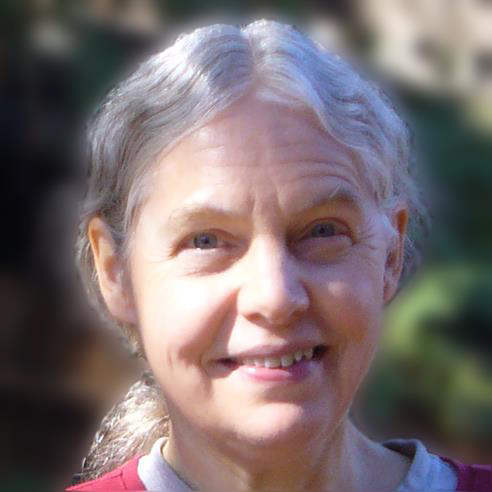
Connie Tettenborn
Belmont, California, USA
https://PoeticArtNmathByConnie.6te.net/
Bridges 2021 Virtual Poetry Reading
Video of Connie Tettenborn reading: Math Expressions of Orange, Rate of Change, Derivation of Factions With Truth as a Variable, Life's Flame, Spark, and Choosing Our Relative Orbit
Printable sample poem: Rate of Change
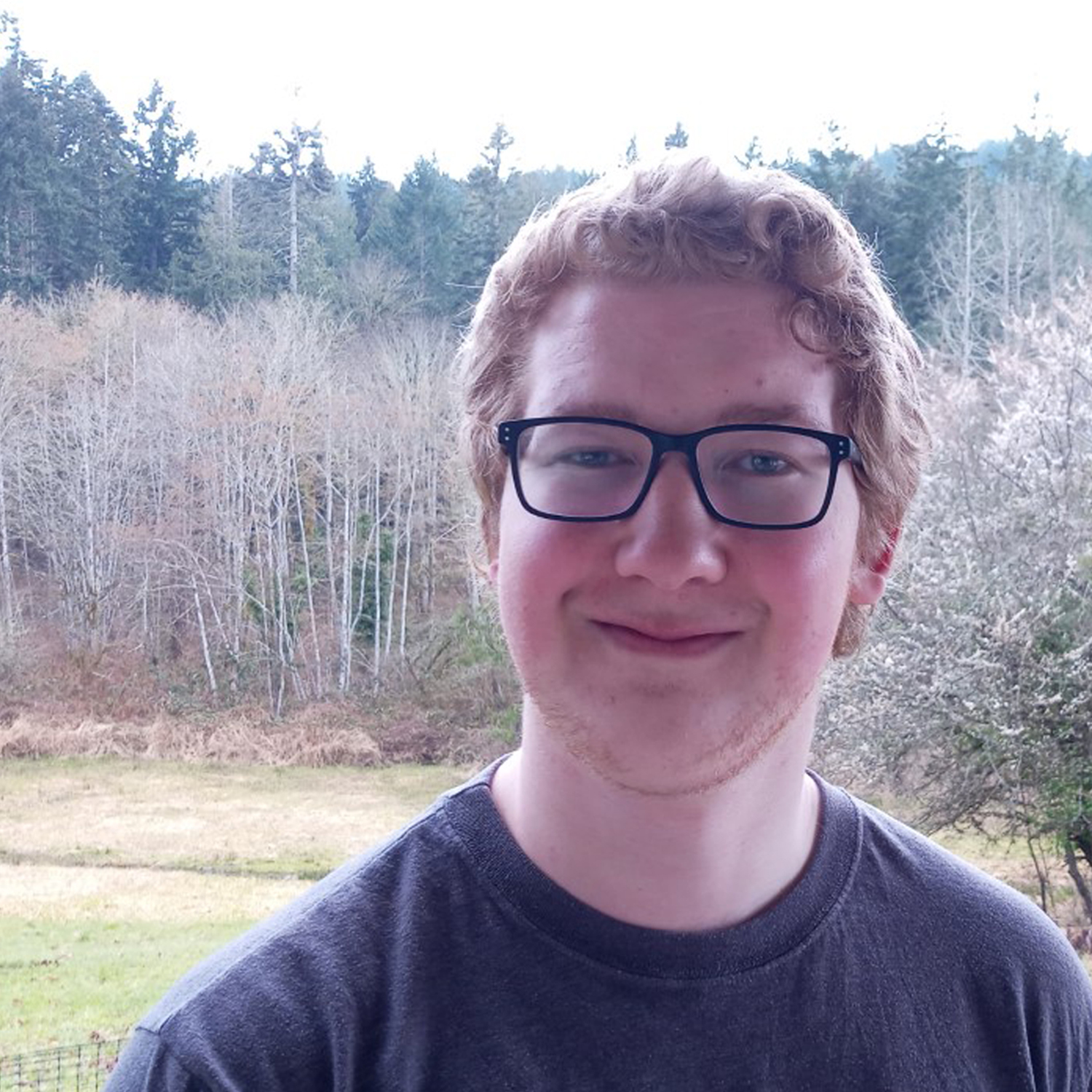
Jacob Richardson
University of British Columbia, Vancouver,
British Columbia, Canada
Jacob
Richardson (google.com)
Bridges 2021 Virtual Poetry Reading
Video of Jacob Richardson reading: Stargazer's Diptych and Playing in Ashes
Printable sample poem: Stargazer's Diptych by Jacob Richardson and Zachary Kuepfer
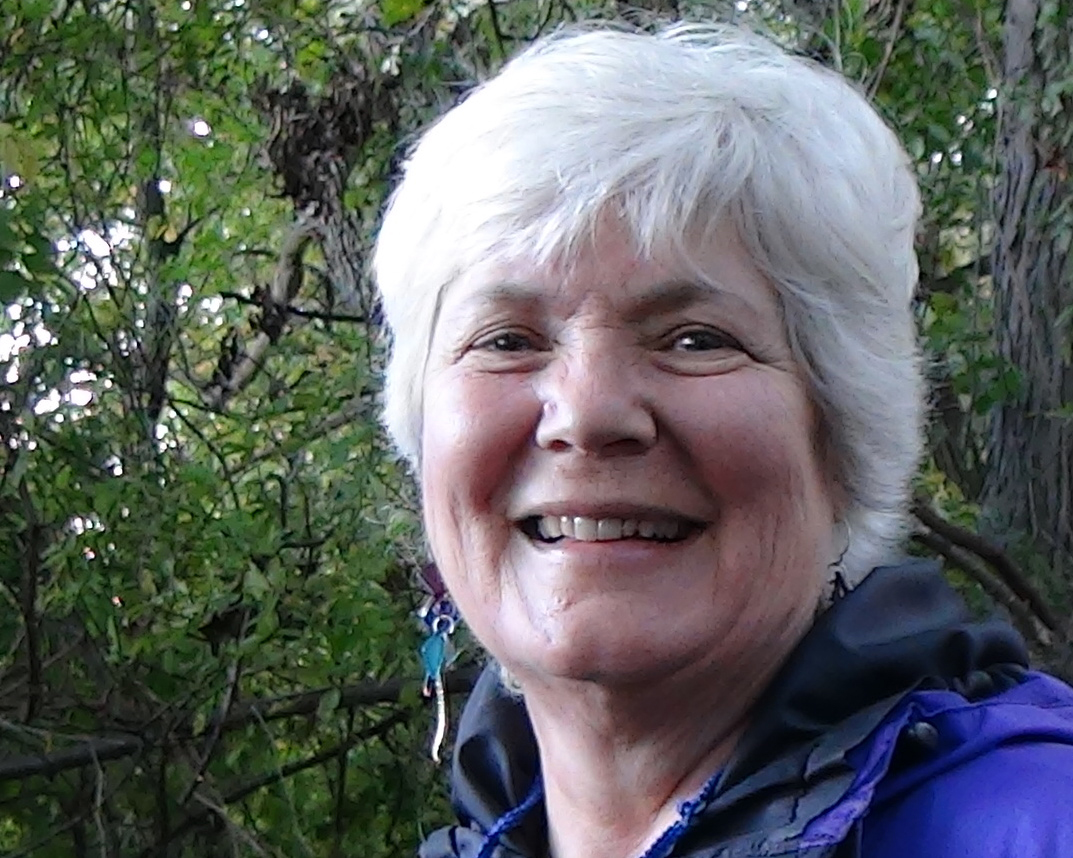 Robin Chapman
Robin Chapman University of Wisconsin, Madison, Wisconsin
USA
http://robinchapmanspoetryandpainting.blogspot.com/
Bridges 2021 Virtual Poetry Reading
Video of Robin Chapman reading: The Gorilla that Walks through the Basketball Game, The Traveling Salesman Problem is NP-Difficult, and Ark for the 22nd Century
Printable sample poem: Strange Attractors
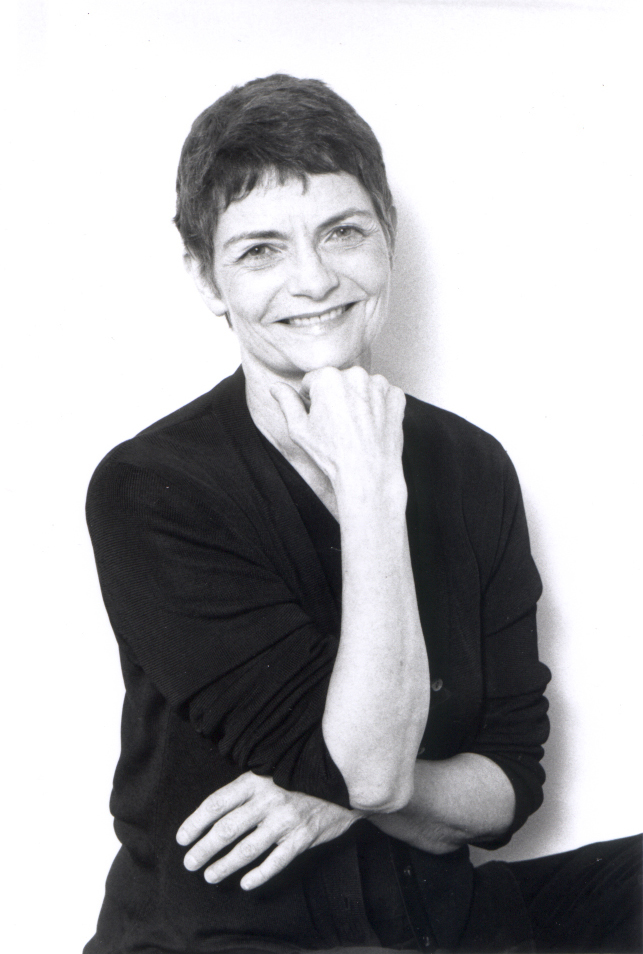
Stephanie Strickland
New York City, New York, USA
http://stephaniestrickland.com
Video of Stephanie Strickland reading: History of Knowledge 3: Blackboard-Based, Plums, and The Infinite Stops Between Our Fingers
Printable sample poem: Distaff Tech
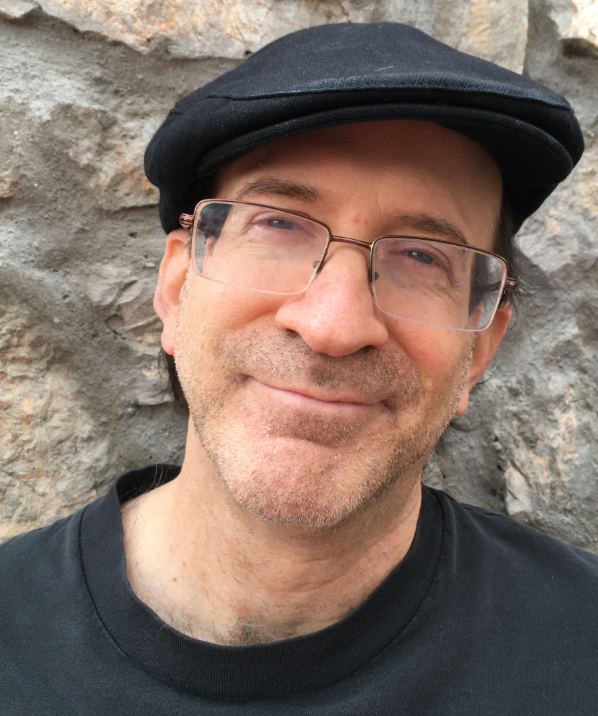
Larry Lesser
University of Texas at El Paso, El Paso,
Texas, USA
https://larrylesser.com/poet-larry-ate/
Video of Larry Lesser reading: Three haikus: Transformed, Multivariate, and Adjusted R-Squared; The Point of Inflection; Stochastic Terrorism; and Cancel
Printable sample poem: Mindful Means
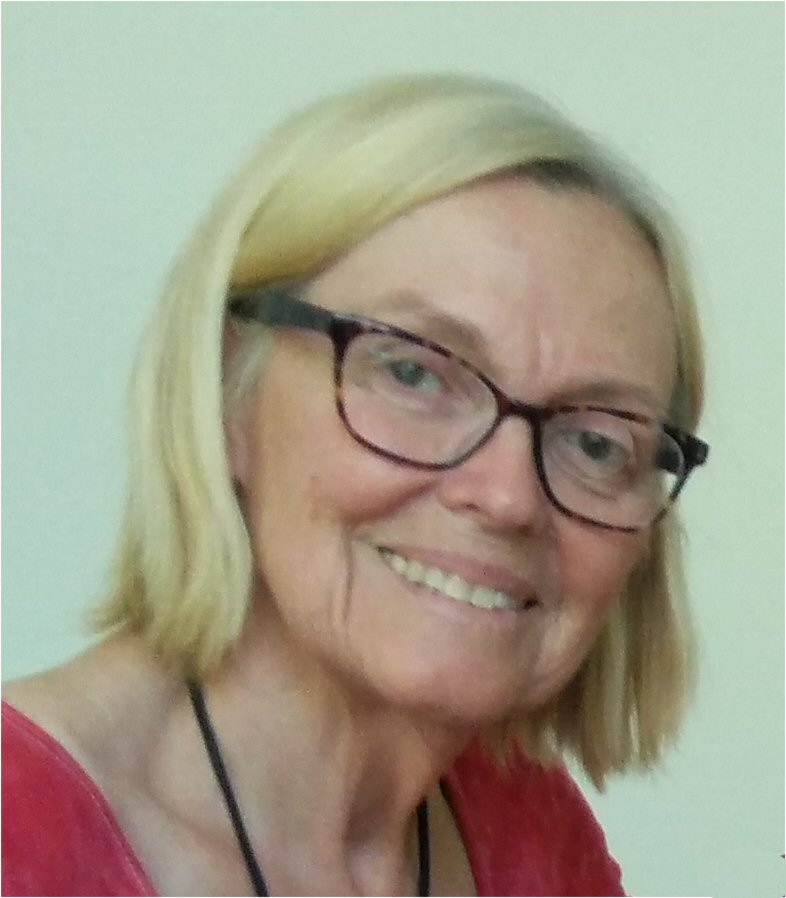
Kate Jones
Kadon Enterprises, Inc. Maryland, USA
http://www.gamepuzzles.com
Video of Kate Jones reading: Happy Anniversary Rubik's Cube! 1980 - 2020
Printable sample poem: Theo Geerinck's StarHex Puzzle
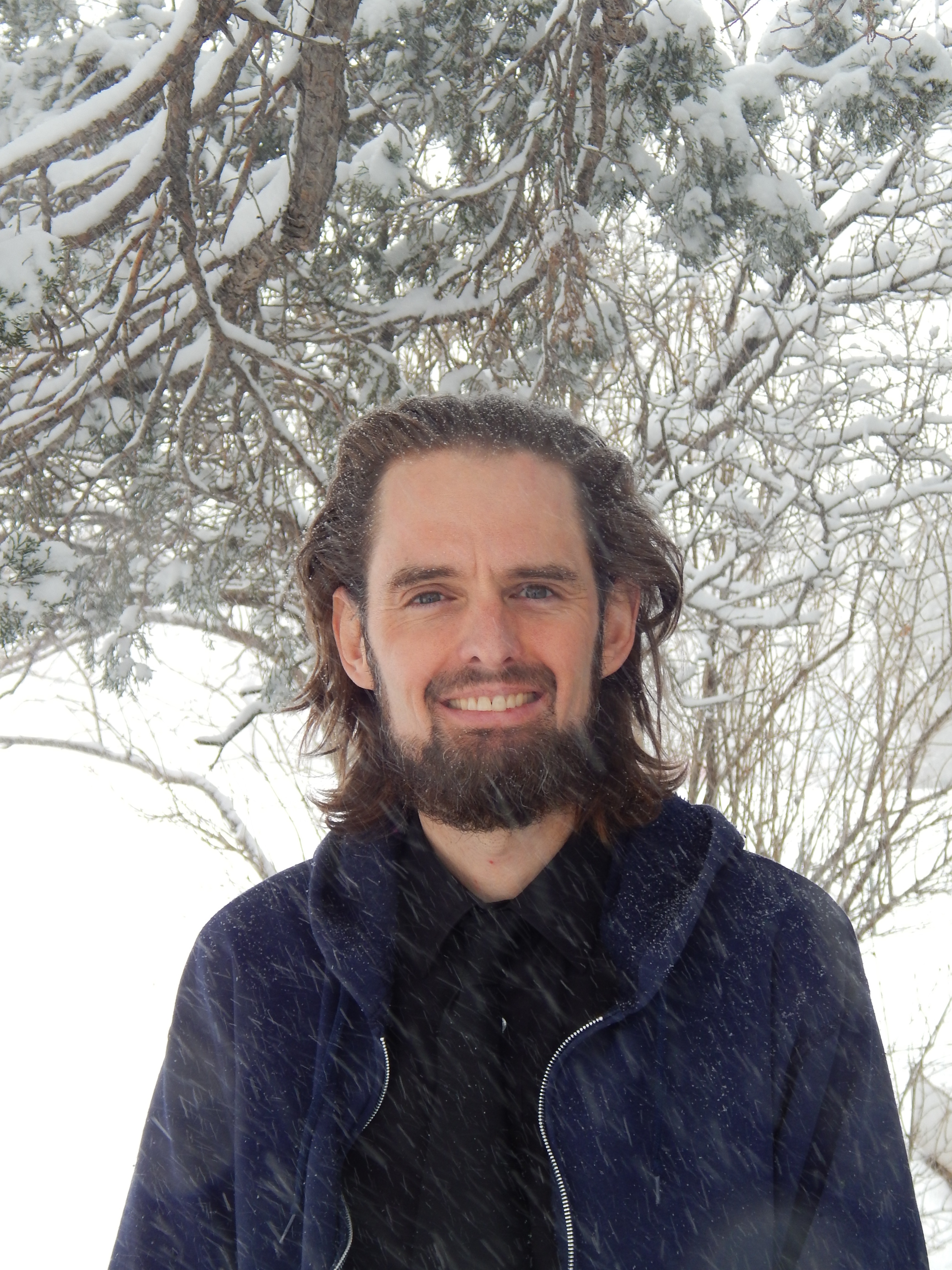
Daniel May
Black Hills State University, Spearfish, South
Dakota, USA
https://talkingwriting.com/daniel-may-poem
Video of Daniel May reading: A Covid Cadae and A Fibonacci Poem for After
Printable sample poem: A Fibonacci Poem for After
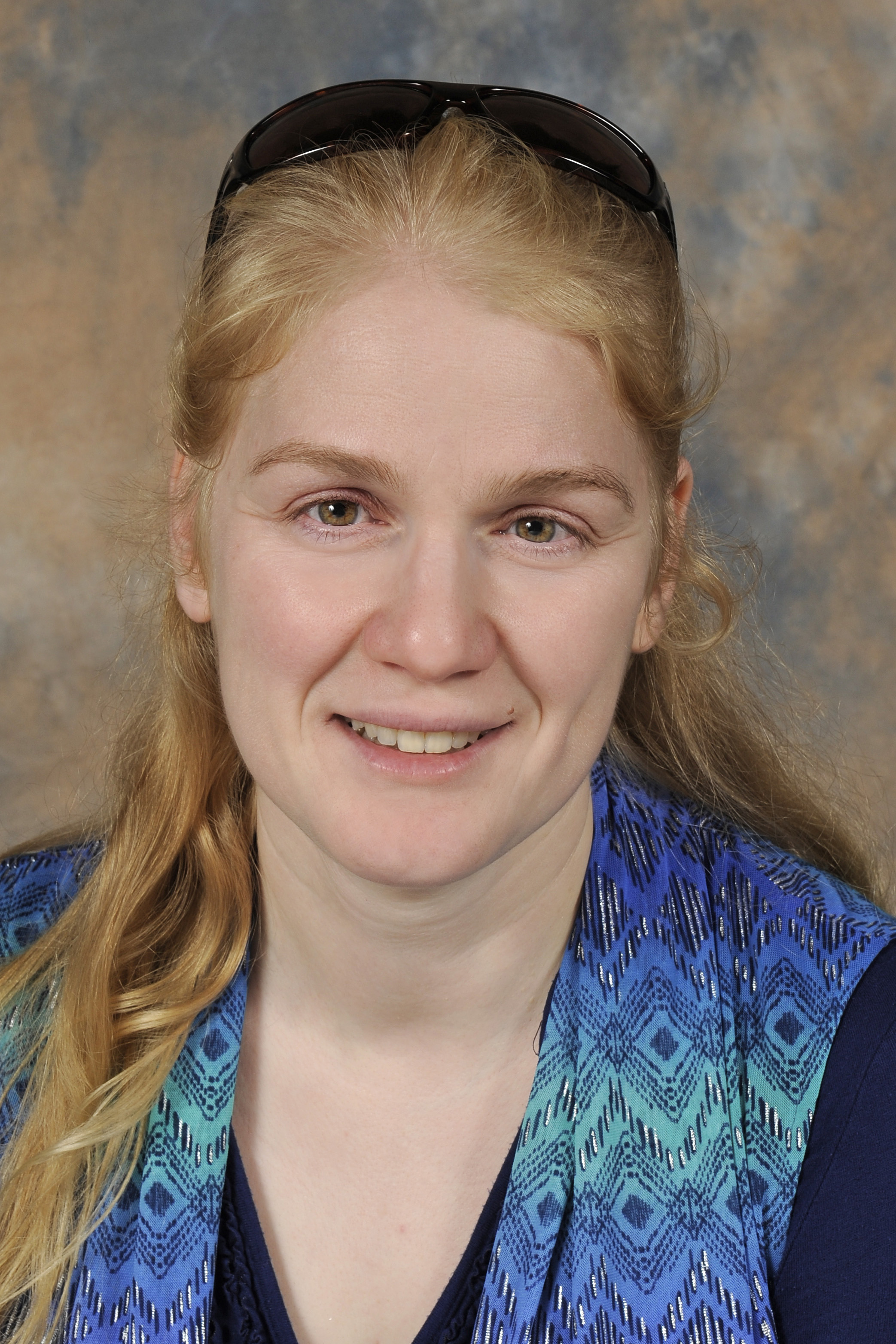
Gizem Karaali
Pomona College, Claremont, California, USA
http://pages.pomona.edu/~gk014747/
Video of Gizem Karaali reading: Continuum ad infinitum
Printable sample poem: Continuum ad infinitum
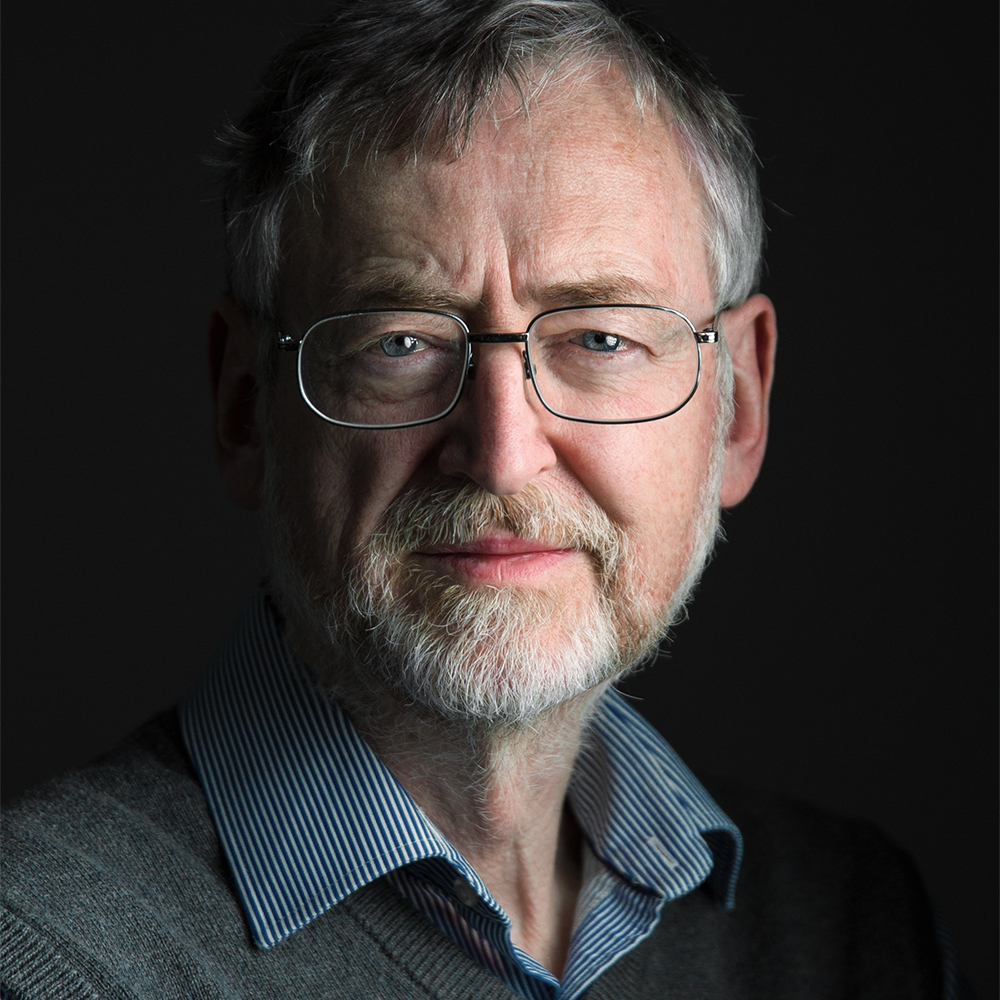
Iggy
McGovern
Trinity College, Dublin, Ireland
http://iggymcgovern.com
Bridges 2021 Virtual Poetry
Reading
Video of Iggy McGovern reading: On
the determination of the golden ratio (phi) by a
series of theatrical approximations
Printable sample poem: On
the determination of the golden ratio (phi) by a
series of theatrical approximations
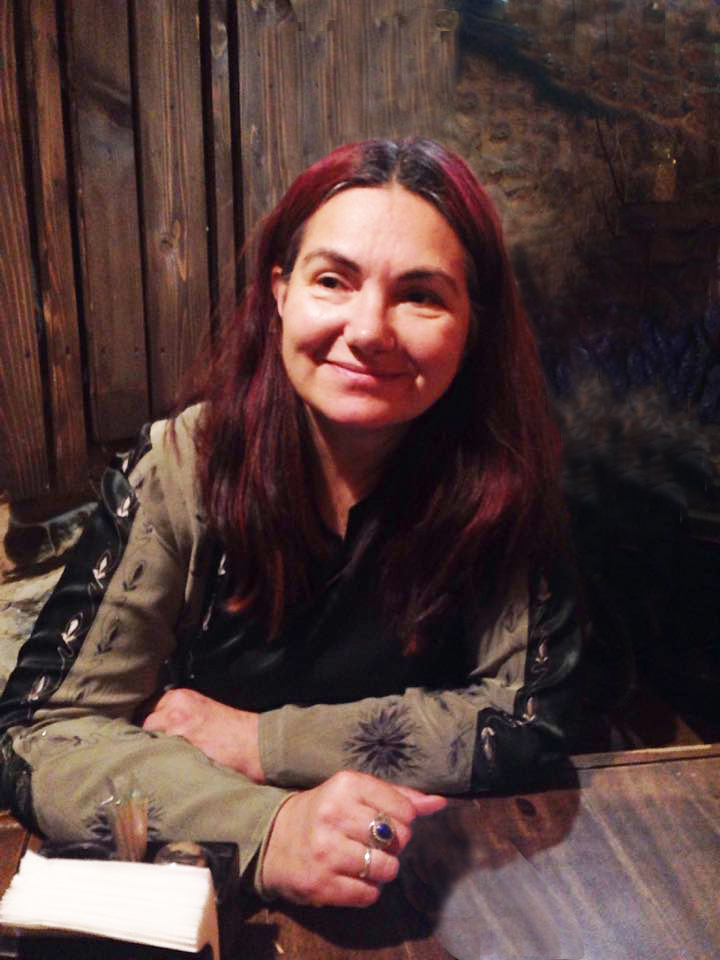
Tatiana
Bonch-Osmolovskaya
WEA Sydey, Sydney, Austalia
http://antipodes.org.au/en.aboutTatianaBonch.html
Bridges 2021 Virtual Poetry
Reading
Video of Tatiana Bonch-Osmolovskaya
reading: On
the Unchangeability of the Paths of the Planets
Printable sample poem: On
the Unchangeability of the Paths of the Planets
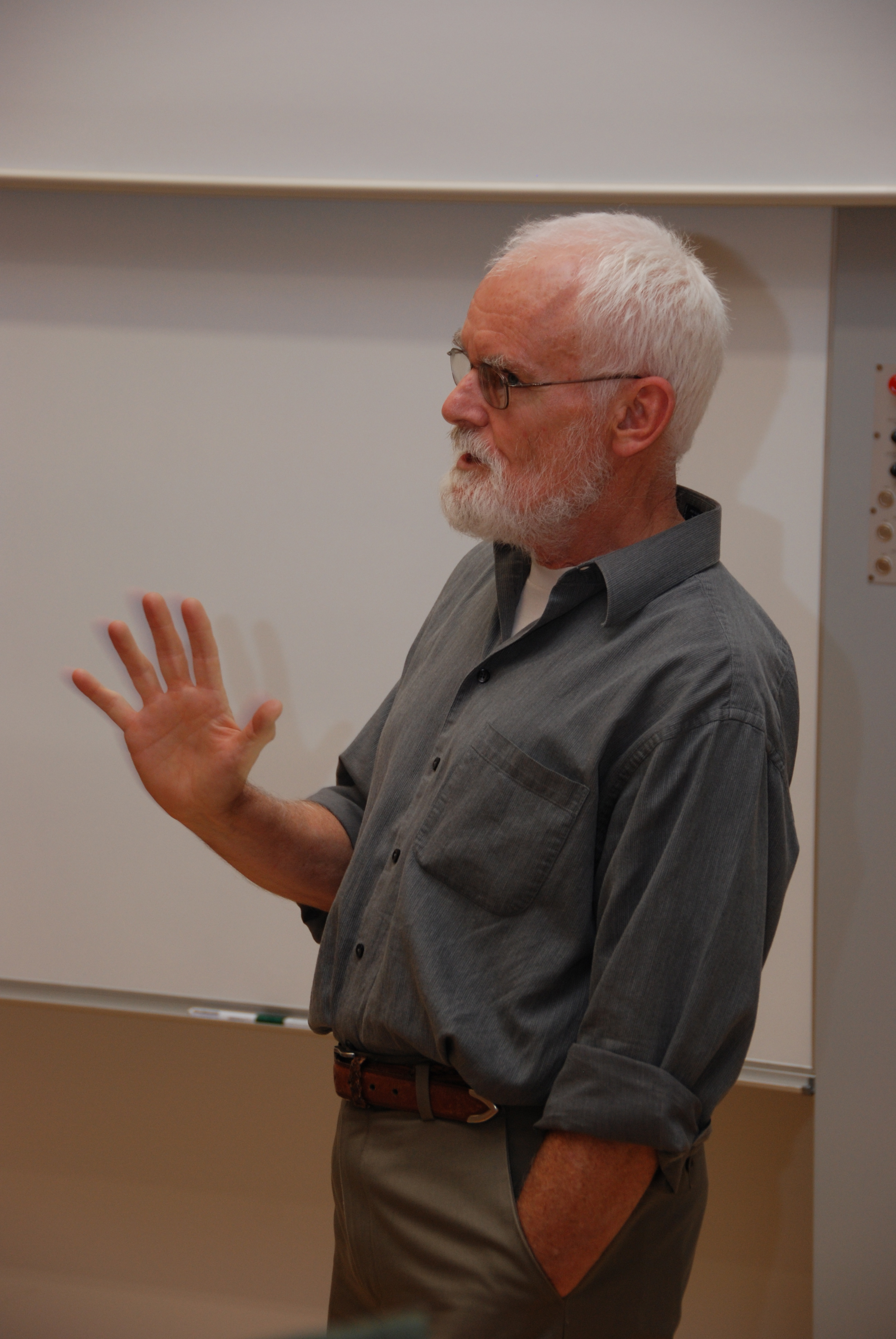
Philip Holmes
Princeton
University, Princeton, New Jersey, USA
https://mae.princeton.edu/people/faculty/holmes
Bridges 2021 Virtual Poetry
Reading
Video of Philip Holmes reading: Retiring
from
Research and Rereading Some Books
Printable sample poem: Retiring
from Research
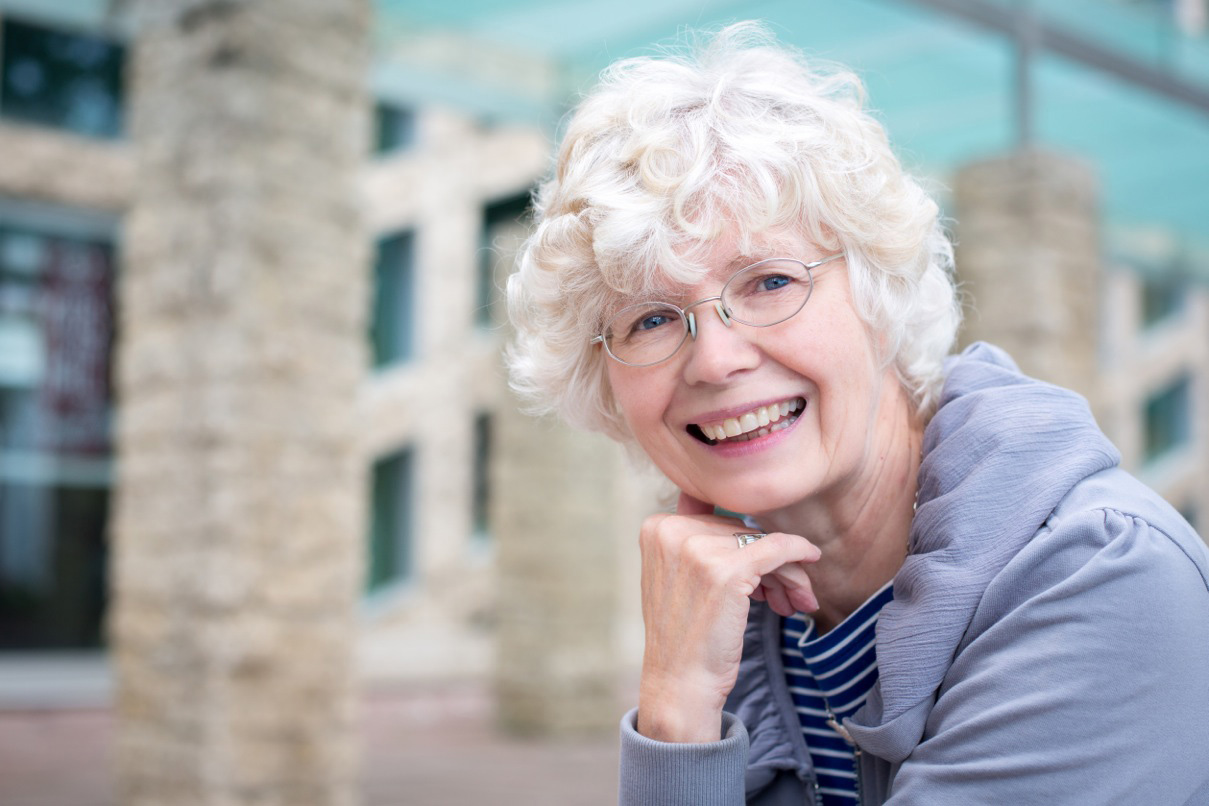 Alice
Major
Alice
Major
Edmonton, Alberta, Canada
https://www.alicemajor.com
Bridges 2021 Virtual
Poetry Reading
Video of Alice Major reading: Honeycomb
Conjectures and
Continuum Hypothesis
Printable sample poem: Continuum
Hypothesis
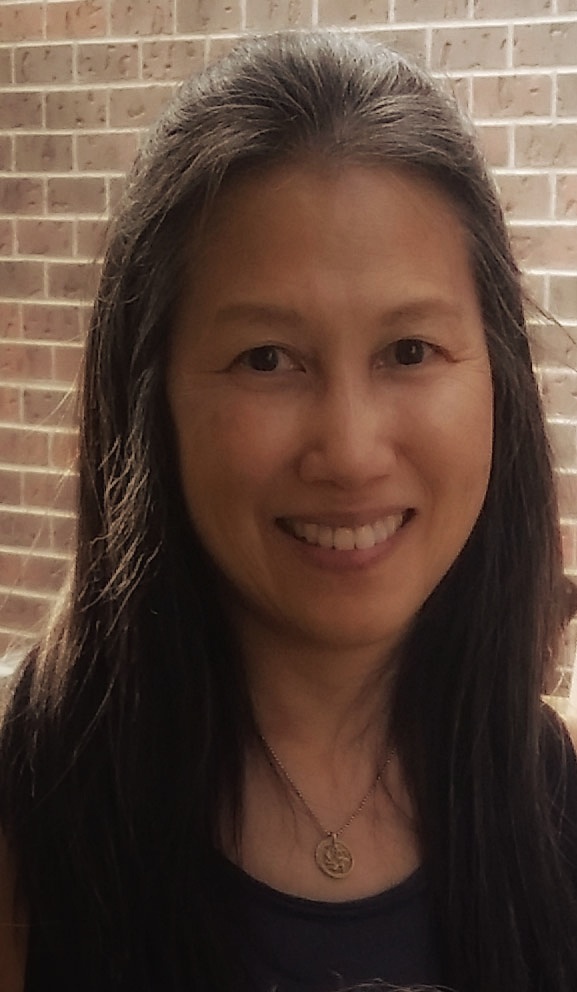
Deanna Nikaido
Tranquili-chi Wellness Center, Baltimore Maryland,
USA
http://www.deannanikaido.com
Bridges 2021 Virtual
Poetry Reading
Video of Deanna Nikaido reading: Zero and
E
= mc^2 (TBA)
Printable sample poem: Zero
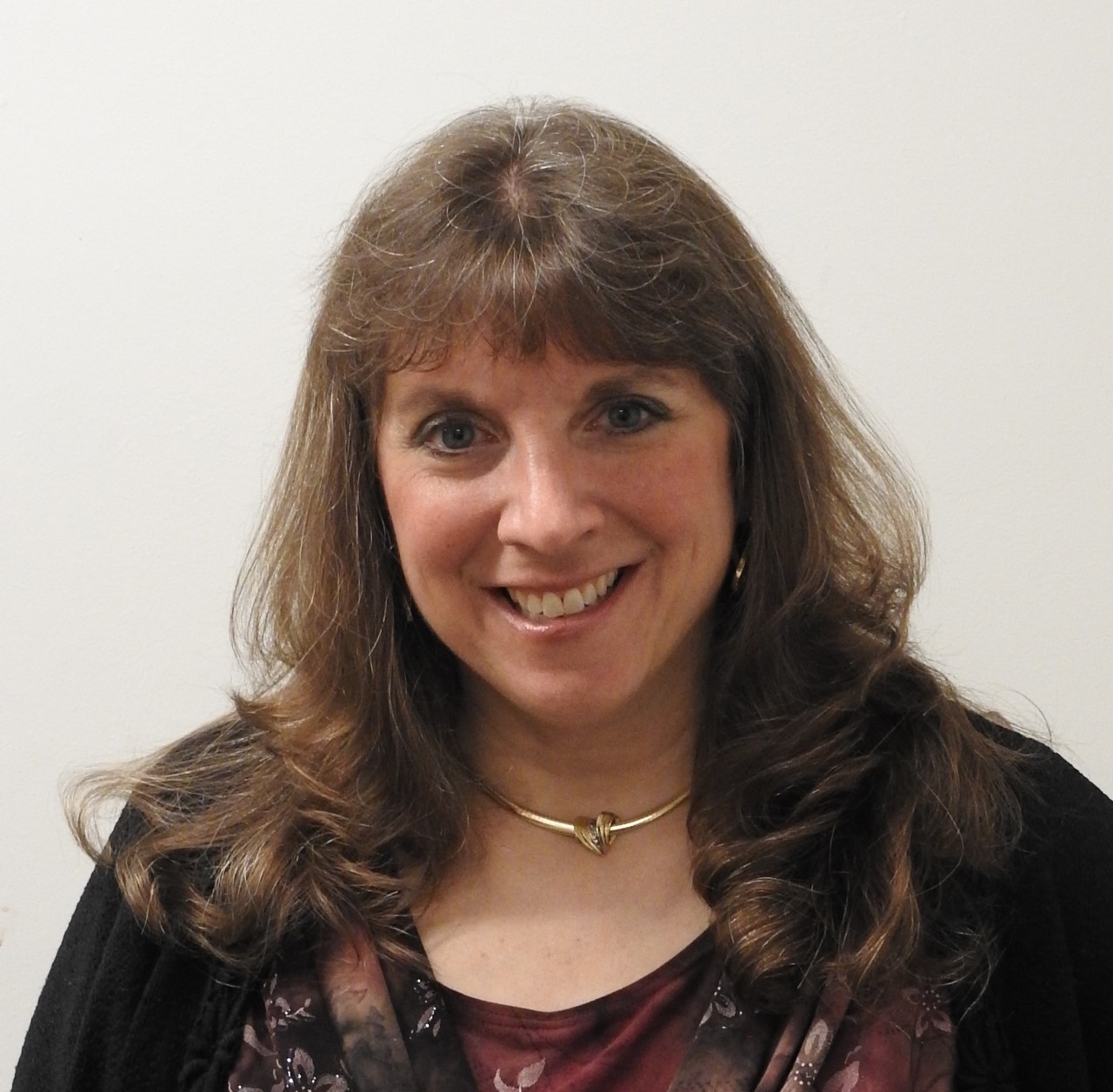
Cindy
Lawrence
MoMath, New York, New York, USA
https://www.scientificamerican.com/article/math-can-help-build-a-global-digital-community/
Bridges 2021 Virtual Poetry Reading
Video of Cindy Lawrence reading: Zoom, 2020, 2021, Reopening, and Pedal on the Petals
Printable sample poem: Pedal on the Petals
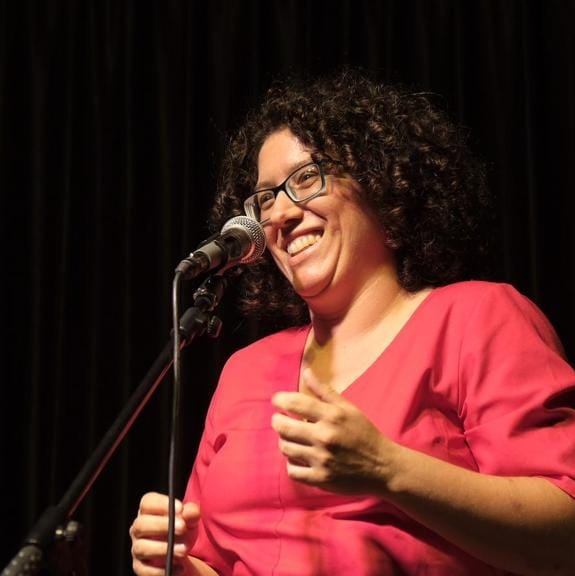
Racheli Yovel
Herzliya, Israel
https://racheliyovel.wordpress.com/about-me/
Bridges
2021 Virtual Poetry Reading
Video of Racheli Yovel reading: Banach
Fixed Point Theorem and Limit
Printable sample poem: Limit
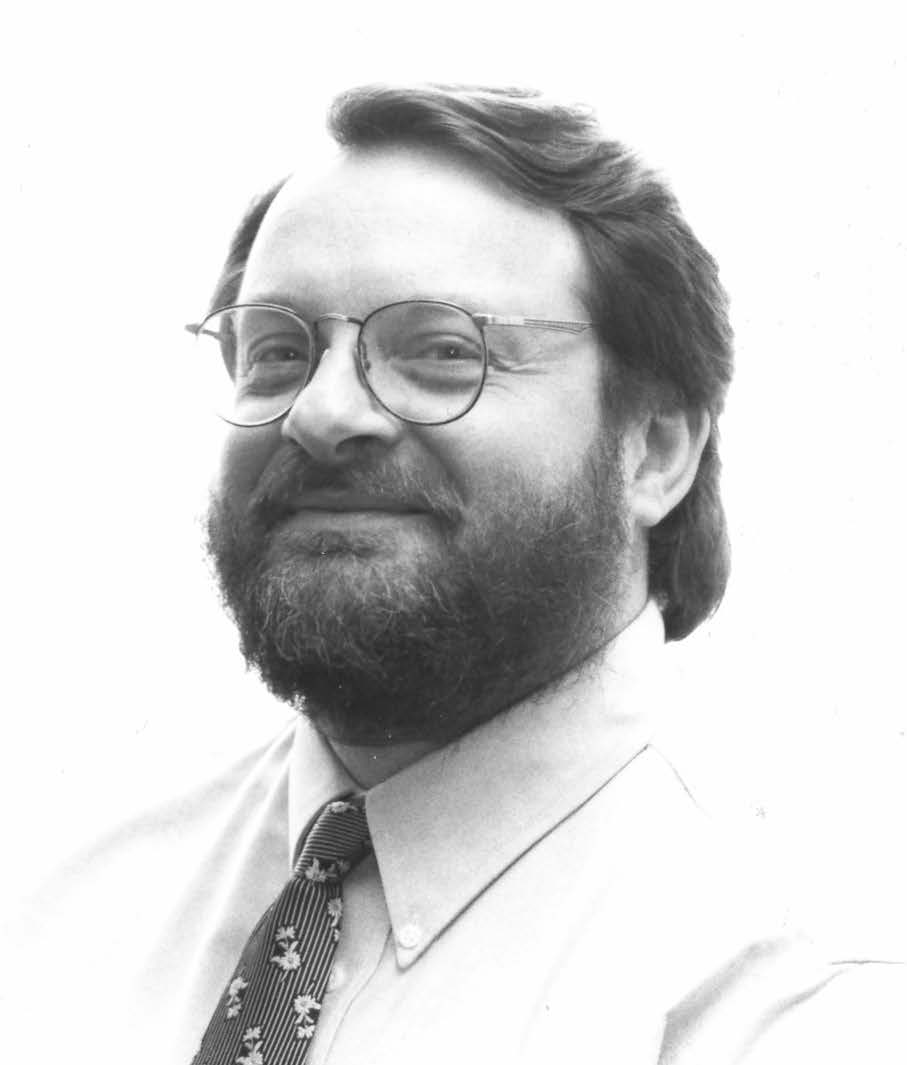
Doug Norton
Villanova University, Villanova, PA, USA
http://www18.homepage.villanova.edu/douglas.norton/
Bridges
2021 Virtual Poetry Reading
Video of Doug Norton performing: Bridges
Math-art Streamin' 2021
Printable sample poem: Never
the Same River Twice
Attention Bridges 2021 participants!
